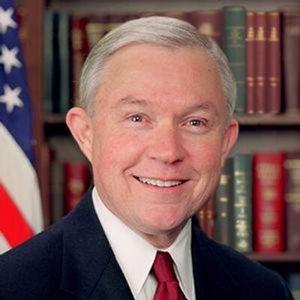The proposed measure redefines reality to make a drug crime out of literally nothing.
Florida gets sued over its "no smoking" medical marijuana law, Maryland gets its first dispensary approved, West Virginia's medical marijuana law goes into effect, and more.
The nation's drug cops were apparently well-behaved this past week, but we can't say the same thing about prison guards.
Canada is expanding the use of safe injection sites, the man behind Florida's successful medical marijuana constitutional amendment is suing the state over a smoking ban enacted by lawmakers, Massachusetts lawmakers continue to struggle with how to implement marijuana legalization, and more.
There's medical marijuana news from Maryland, drug warriors defend Sessions' harsh sentencing approach, Mexico's prohibition-related violence is ticking upward, and more.
Massachusetts lawmakers finally figured out their budget, so now maybe they can figure out how to implement the will of the voters of legal marijuana; the Supreme Court lets Wisconsin continue to enforce its "cocaine mom" law as the state appeals a lower court ruling it's unconstitutional; Colombian coca cultivation was way up last year, and more.
Michigan legalizers are fast off the mark in their initiative signature-gathering campaign, the Drug Policy Alliance and 30 groups call for drug decriminalization, Oregon is set to defelonize drug possession, and more.
Connecticut has become the 14th state to end civil asset forfeiture, Nevada's state government is moving to ease a potential marijuana shortage, Jeff Sessions gives another drug war speech, and more.
Congress is dealing with medical marijuana and drug policy issues, legalization advocates call on New Hampshire's governor to kill a marijuana study commission bill, Rhode Island's governor issues an executive order dealing with the state's opioid crisis, and more.
p>With
the support of state law enforcement, a Massachusetts Democratic state representative has filed a drug war bill that would send violators to prison for a mandatory minimum two years (five years for a second offense) and allow police to seize their vehicles -- all without the presence of any actual drugs.
Sponsored by Rep. Stephan Hay (D-Fitchfield), the measure,
House Bill 1266, makes it a crime to have a hidden compartment in one's vehicle or to try to add one -- and it
presumes that any hidden compartment in a vehicle is for "for the purpose of transporting or distributing controlled substances" and related contraband, such as cash or weapons. As the bill specifies in its asset forfeiture section:
Proof that a conveyance contains a hidden compartment as defined in this section shall be prima facie evidence that the conveyance was used intended for use in and for the business of unlawfully manufacturing, dispensing, or distributing controlled substances.
This is a legislative attempt to redefine reality in the name of drug war priorities akin to South Dakota's law deeming meth use or possession by a parent as child abuse. Despite that law, meth use is not child abuse, although it could lead to it. Similarly, having a hidden compartment in a car does not mean one is involved in trafficking, although one could be. But in both cases, legislators seek to twist reality to sync with prohibitionist -- and punitive -- ideology.
Only one state, Ohio, has a similar law on the books, and it has only been used once, but that one instance should be disturbing. In 2013, state troopers stopped Norman Gurley and discovered a secret compartment in his vehicle. They found absolutely no drugs but arrested him anyway on charges he broke the secret compartment law. That case briefly became a national news sensation before fading into obscurity, but it still lives: Gurley is set for a jury trial in December.
Police in Massachusetts are supporting this bill not only because it gives them one more tool in their war on drugs, but also because they get to keep any cars they seize. Massachusetts has the worst civil asset forfeiture laws in the country, and unlike states that are lining up to end forfeitures without a criminal conviction, as neighboring Connecticut did this week, cops only need to reach the threshold of probable cause that someone's cash or car or other property is related to a crime to seize it. This bill would make it all the easier, and they wouldn't even need to find any drugs.
back to top
Florida gets sued over its "no smoking" medical marijuana law, Maryland gets its first dispensary approved, West Virginia's medical marijuana law goes into effect, and more.
FloridaLast Thursday, the state was sued over the no smoking provision in the medical marijuana law. Orlando attorney John Morgan, the mastermind and chief funder of the state's voter-approved medical marijuana law, filed a lawsuit challenging a legislative ban on smoking medical marijuana. He is asking the courts to throw out the implementing law, saying legislators are violating the will of the voters by altering the constitutional amendment they approved last November. "Inhalation is a medically effective and efficient way to deliver Tetrahydrocannabinol (THC), and other cannabinoids, to the bloodstream," the lawsuit argues. "By redefining the constitutionally defined term 'medical use' to exclude smoking, the Legislature substitutes its medical judgment for that of 'a licensed Florida physician' and is in direct conflict with the specifically articulated Constitutional process."
Maryland
Last Wednesday, regulators approved the state's first dispensary. The Maryland Medical Cannabis Commission approved a dispensary license for the Wellness Institute of Maryland in Frederick on Wednesday. The store began seeing patients Thursday for "pre-orders," but won't actually have a crop to harvest for several months.
Last Thursday, the governor overhauled the medical marijuana commission. Gov. Larry Hogan (R) on Thursday overhauled the commission, which had come under fire for its launch of the state's medical marijuana program. He replaced six members whose terms on the 16-member panel had expired and filled three vacancies. The new appointments doubled the number of minority commissioners from two to four, responding to calls from the Legislative Black Caucus and others to create more diversity in the program.
North Dakota
Last Friday, the state sought letters of intent from prospective growers and dispensaries. The Health Department last asked prospective medical marijuana growers and dispensary operators to send in letters of intent to apply under the state's new medical marijuana law. The department said it wants a better idea of how many applications it will receive in coming months. Interested parties have until July 28 to send in their letters.
Puerto Rico
On Sunday, the governor signed a medical marijuana bill into law. Gov. Ricardo Rosello, a former biomedical engineer, signed into law a bill that legalizes and regulates medical marijuana in the US territory. The move comes after Rossello criticized an earlier executive order allowing medical marijuana as insufficient. "As a scientist, I know firsthand the impact that medicinal cannabis has had on patients with various diseases," he said. "The time has come for Puerto Rico to join the flow of countries and states that have created similar legislation."
West Virginia
Last Wednesday, the state's medical marijuana law went into effect. The state's Medical Cannabis Act is now in effect, but it could still be months or years before Mountain State patients are able to medicate with marijuana. But now an advisor board has been appointed to create a regulatory framework for medical marijuana regulations, and it could be 2019 before patients are able to legally purchase their medicine.
[For extensive information about the medical marijuana debate, presented in a neutral format, visit MedicalMarijuana.ProCon.org.]
back to top
The nation's drug cops were apparently well-behaved this past week, but we can't say the same thing about prison guards. Let's get to it:
In San Diego,
a former California state prison guard pleaded guilty last Thursday to smuggling drugs and cellphones into the Richard J. Donovan Correctional Facility. Anibal Navarro, 39, admitted receiving around $45,000 over a two-year period to smuggle meth, heroin, and cellphones to inmates. He went down after being popped by the FBI and the prison's internal affairs unit as he attempted to smuggle 10 ounces of meth and four ounces of heroin into the prison at Otay Mesa.
In Savannah, Georgia, a former federal prison guard was sentenced last Thursday to 46 months in prison for attempting to transport cocaine for a prisoner. Akeiran Lawson admitted approaching an inmate and offered to transport loads for a drug trafficking organization, but the inmate ratted him out, which led to a federal undercover sting. In the sting, Lawson agreed to transport a load from Savannah to Atlanta for $20,000, but was arrested after he took possession of the fake cocaine.
back to top
Canada is expanding the use of safe injection sites, the man behind Florida's successful medical marijuana constitutional amendment is suing the state over a smoking ban enacted by lawmakers, Massachusetts lawmakers continue to struggle with how to implement marijuana legalization, and more.

Vancouver's Insite supervised injection facility (vch.ca)
Massachusetts House Speaker Wants Marijuana Talks Suspended Until Budget is Passed. Legislators locked in a battle over how to implement the state's voter-approved pot legalization law are being told to put the issue on hold until solons can get a budget passed. House Speaker Roberto DeLeo (D), whose chamber is backing a plan that radically increases taxes and would allow localities to ban marijuana businesses without a popular vote, called Wednesday for setting the issue aside to take on the budget. But Senate President Stan Rosenberg (D) countered that the Senate could work on both bills and that "mischief makers are once again at work."
Nevada Opening Pot Sales Exceed Store Owners' Expectations. Legal marijuana sales that began just after midnight Saturday have exceeded the expectations of pot shop operators. Long lines formed in the wee hours Saturday morning, and shops are continuing to report heavy interest, with lines forming again before shops opened for business on Monday. "I'm very happy with the way sales have gone and continue to go, especially when you consider that the word didn't really get out ahead of time," Andrew Jolley, president of the Nevada Dispensary Association and a store owner told Leafly. "The public really only had a couple of weeks' notice, whereas Colorado had a full year to prepare."
Medical Marijuana
Florida Sued Over No Smoking Provision in Medical Marijuana Law. Orlando attorney John Morgan, the mastermind and chief funder of the state's voter-approved medical marijuana law, filed a lawsuit Thursday challenging a legislative ban on smoking medical marijuana. He is asking the courts to throw out the implementing law, saying legislators violated the will of the voters by altering the constitutional amendment they approved last November. "Inhalation is a medically effective and efficient way to deliver Tetrahydrocannabinol (THC), and other cannabinoids, to the bloodstream," the lawsuit argues. "By redefining the constitutionally defined term 'medical use' to exclude smoking, the Legislature substitutes its medical judgment for that of 'a licensed Florida physician' and is in direct conflict with the specifically articulated Constitutional process."
West Virginia Medical Marijuana Law Now in Effect. The state's Medical Cannabis Act went into effect Wednesday, but it could still be months or years before Mountain State patients are able to medicate with marijuana. But now an advisory board has been appointed to create a regulatory framework for medical marijuana regulations, and it could be 2019 before patients are able to legally purchase their medicine.
Drug Testing
Colorado Employers Begin to Walk Away from Testing for Marijuana. Changing social attitudes and a tight labor market are pushing employers in the state to drop screenings for marijuana from pre-employment drug tests, said a spokesman for the Mountain States Employers Council. "We're finding that for employers, it's such a tight labor market, that they can't always afford to have a zero-tolerance approach to somebody's off-duty marijuana use, Curtis Graves told Colorado Public Radio.
Harm Reduction
Mississippi Law Easing Naloxone Access Now in Effect. As of July 1, health care providers can write "standing prescriptions" for the opioid overdose reversal drug for family members of people strung out on opioids. "This will save many lives," said Rep. Tommy Reynolds (D-Water Valley).
International
Canada Expanding Safe Injection Sites. Once there was only InSite, the Vancouver safe injection site under constant assault from the Conservative federal government. But now, the Liberals are in power, and the number of safe injection sites has expanded to seven, including three in Montreal and another in Vancouver. Another Montreal site is set to open soon, and so are three in Toronto, with more than a dozen other potential sites being considered.
back to top
There's medical marijuana news from Maryland, drug warriors defend Sessions' harsh sentencing approach, Mexico's prohibition-related violence is ticking upward, and more.

Coca processing lab at site of first coca plantation found and destroyed in Honduras. (Honduras Public Prosecutor's Office)
Maryland Regulators Approve First Dispensary. The Maryland Medical Cannabis Commission approved a dispensary license for the Wellness Institute of Maryland in Frederick on Wednesday. The store began seeing patients Thursday for "pre-orders," but won't actually have a crop to harvest for several months.
Maryland Governor Overhauls Medical Cannabis Commission. Gov. Larry Hogan (R) on Thursday overhauled the commission, which had come under fire for its launch of the state's medical marijuana program. He replaced six members whose terms on the 16-member panel had expired and filled three vacancies. The new appointments doubled the number of minority commissioners from two to four, responding to calls from the Legislative Black Caucus and others to create more diversity in the program.
Sentencing
Drug Warriors Defend Sessions' Hard Line on Drug Sentencing. The heads of professional groupings committed to punitive, prohibitionist drug policies penned an op-ed Wednesday defending Attorney General Sessions' return to harsh sentencing practices and charging that Obama administration efforts to reduce drug sentences had left "a devastating mark downstream on the safety of communities across the nation." The piece was a direct response to an op-ed last month by former Assistant Attorney General Sally Yates, who noted that violent crimes rates are still at historic lows and accused Sessions of "stoking fear" with an argument that "just isn't supported by the facts."
International
Cartel Clashes in Northern Mexico Leave 26 Dead. At least 26 people were killed in a predawn gun battle between warring cartels Wednesday in Las Varas, Chihuahua, as members of La Linea squared off against a Sinaloa cartel faction. The violence in Chihuahua comes just days after a firefight with police near the resort town of Mazatlan, Sinaloa, left 19 suspected cartel members dead. Violence is surging in Mexico, with 2,186 homicide investigations opened in May, the most in any month since the government began publishing homicide statistics in the 1990s.
Honduras Destroys First Coca Crop. Honduran Army units on Friday destroyed a coca plantation containing 12,000 plants near the town of Esquipulas del Norte in Olancho province, marking the first time a coca crop had been found and eradicated in the country. Authorities had discovered the planting in late April. They also found a crude coca processing lab nearby and are investigating "the possible involvement of foreigners."
back to top
Massachusetts lawmakers finally figured out their budget, so now maybe they can figure out how to implement the will of the voters on legal pot; the Supreme Court lets Wisconsin continue to enforce its "cocaine mom" law as the state appeals a lower court ruling it's unconstitutional; Colombian coca cultivation was way up last year, and more.

Colombian coca cultivation jumped last year, the UN Office on Drugs and Crime says. (unodc.org)
Massachusetts Lawmakers Resume Talks on Implementing Legalization. A House-Senate conference committee was set for a closed door meeting Monday afternoon to restart negotiations over legislation that would implement the state's voter-approved marijuana legalization law. House and Senate negotiators are split over a number of issues, foremost among them taxation rates and whether localities can ban pot businesses without a popular vote.
Medical Marijuana
North Dakota Seeks Letters of Intent from Prospective Growers and Dispensaries. The Health Department last Friday asked prospective medical marijuana growers and dispensary operators to send in letters of intent to apply under the state's new medical marijuana law. The department said it wants a better idea of how many applications it will receive in coming months. Interested parties have until July 28 to send in their letters.
Drug Policy
US Supreme Court Lets Wisconsin "Cocaine Mom" Law Stay in Effect Pending Appeal. The Supreme Court last Friday issued an order lifting an injunction against Wisconsin's "cocaine mom" law imposed in April. The law allows state officials to detain pregnant women suspected of using drugs or alcohol. A federal district court judge ruled the law unconstitutionally vague and issued the injunction, but now the Supreme Court will allow the state to continue to use the law while it appeals the lower court ruling.
Sentencing
Report: Some Federal Prosecutors Ignored Obama Sentencing Recommendations. A report from the Justice Department's Office of the Inspector General released last Friday finds that at least 20 of the country's 94 federal prosecutorial districts did not follow Obama administration "Smart on Crime" sentencing recommendations aimed at reducing the number of mandatory minimum sentences for drug offenses. Still, the report noted, the initiative had an impact: Drug offenders sentenced without mandatory minimum sentences increased from 40% in 2014 to 54% in 2015.
International
UN Says Colombia Coca Cultivation Increased Dramatically Last Year. The UN Office on Drugs and Crime reports that the amount of land under coca cultivation jumped from 250,000 acres in 2015 to 363,000 acres last year, an increase of nearly 50%. The UNODC notes that most of the increase came in areas that had been under the control of the now demobilized FARC guerrillas. The Colombian military failed to take effective control of those areas, leaving a power vacuum filled by dissident guerrilla groups, rightist paramilitaries, and drug trafficking organizations.
back to top
Michigan legalizers are fast off the mark in their initiative signature-gathering campaign, the Drug Policy Alliance and 30 groups call for drug decriminalization, Oregon is set to defelonize drug possession, and more.
Marijuana PolicyMichigan Initiative Campaign Already Has 100,000 Raw Signatures. The Coalition to Regulate Marijuana Like Alcohol, which wants to put a legalization initiative on the November 2018 ballot, announced Monday that signature gathering was ahead of schedule and that the group had already passed the 100,000 mark. To qualify for the ballot, the group must collect 252,523 valid voter signatures within a six-month period. They began signature gathering in late May.
DC Public Use Marijuana Arrests Tripled Last Year. More than 400 people were arrested in the nation's capital last year for publicly using marijuana, a nearly three-fold jump over the 142 arrested in 2015. And this year so far the pace of arrests remains steady. Some advocates criticized the increase in arrests, with Adam Eidinger, the man behind DC's legalization law, saying the right to smoke marijuana in the District is effectively reserved for "those who own private property," with renters, residents of public housing, and visitors out of luck. "A lot of it is people not realizing they can't smoke in public," he said of the increase in arrests. "A lot of it is people who have no place else to go."
Medical Marijuana
Puerto Rico Governor Signs Medical Marijuana Bill. Gov. Ricardo Rosello, a former biomedical engineer, on Sunday signed into law a bill that legalizes and regulates medical marijuana in the US territory. The move comes after Rossello criticized an earlier executive order allowing medical marijuana as insufficient. "As a scientist, I know firsthand the impact that medicinal cannabis has had on patients with various diseases," he said. "The time has come for Puerto Rico to join the flow of countries and states that have created similar legislation."
Drug Policy
Drug Policy Alliance Report Calls for US Drug Decriminalization. In a new report endorsed by more than 30 organizations, the Drug Policy Alliance is calling for the end of arresting people simply for using or possessing drugs. "Our current laws have branded tens of millions of people with a lifelong criminal record that makes it hard to get a job or an apartment," said Art Way, senior director of national criminal justice strategy at the Drug Policy Alliance. "The experience of the last few decades shows that criminalization has been utterly ineffective in reducing problematic drug use."
Sentencing
Oregon Defelonizes Drug Possession. The state legislature has approved House Bill 2355, which makes simple possession of drugs such as heroin, MDMA, and meth a misdemeanor punishable by no more than a year in jail. Under current law, drug possession is a felony punishable by up to 10 years in prison. The bill also includes a provision aimed at reducing racial profiling by police. The legislature also approved House Bill 3079, which reduces penalties for property crimes often related to problematic drug use. Gov. Kate Brown (D) is expected to sign the bills into law shortly.
back to top
Connecticut has become the 14th state to end civil asset forfeiture, Nevada's state government is moving to ease a potential marijuana shortage, Jeff Sessions gives another drug war speech, and more.

Attorney General Sessions showed up at DARE to slam Obama-era drug reforms. (senate.gov).
Massachusetts Governor Says Deal on Legalization Close. Gov. Charlie Baker (R) said Thursday lawmakers are close to reaching a deal on a bill that will regulate legal marijuana in the state. The House had favored a 28% tax and allowing localities to ban pot businesses without a popular vote, while the Senate held to the 12% tax included in the voter-approved legalization initiative and wouldn't allow pot shop bans without a popular vote. "I'm told there are only a couple minor things that are outstanding. I hope they get them done because if they don't get them done, I think at some point, we're going to have to go forward with the law as it was written," said Baker.
Nevada Regulators Set to Approve Emergency Regs to Avoid Pot Shortage.State tax officials are set to vote Thursday on an emergency regulation that they hope will allow marijuana stores to avoid running out of supply. The regulation would allow the state to issue distribution licenses that are currently being held up by a legal challenge from liquor distributors, who want a cut of the action. Because of heavy demand since legal sales started July 1, some shops are "running on fumes," said Nevada Dispensary Association President Andrew Jolley.
Asset Forfeiture
Connecticut Governor Signs Bill Ending Civil Asset Forfeiture. Gov. Dannel Malloy (D) on Monday signed into law House Bill 7146, which ends property or cash seizures in the state without a criminal conviction. Connecticut becomes the 14th state to require a criminal conviction in most or all forfeiture cases.
Drug Policy
Attorney General Sessions Again Attacks Drug, Sentencing Reforms. In a speech at the Drug Abuse Resistance Education (DARE) training conference in Dallas on Tuesday, Attorney General Jeff Sessions called the country's drug problem "unprecedented" and generally blamed it on Obama-era sentencing reforms that led prosecutors "not to charge the most serious offenses." Sessions said a new Justice Department police directing prosecutors to seek mandatory minimum sentences was the way to go. "We are going to trust our prosecutors again," Sessions said Tuesday. "This policy empowers trust in professionals to apply the law fairly and exercise discretion when appropriate."
back to top
Congress is dealing with medical marijuana and drug policy issues, legalization advocates call on New Hampshire's governor to kill a marijuana study commission bill, Rhode Island's governor issues an executive order dealing with the state's opioid crisis, and more.

VA docs could recommend medical marijuana for veterans under legislation moving in the Senate (Sonya Yruel/Drug Policy Alliance)
Alaska's Largest City Wants Social Consumption at Pot Shops. The Anchorage Assembly on Tuesday urged the state Marijuana Control Board to allow tourists and locals to smoke or otherwise consume marijuana at retail stores. The move comes as the board is set to meet in Fairbank later this week. The board is expected to examine several proposals related to consumption in pot shops at that meeting.
Montana Man Challenges State's Standard for Marijuana DUIs. A Billings man facing a vehicular manslaughter charge for an accident while he was allegedly under the influence of marijuana is challenging the state's de jure standard of 5 nanograms of THC per milliliter of blood. Kent Roderick Jensen and his attorney argue that the standard is arbitrary and the charge should be dismissed. "There is no science to back up the 5 ng/mL level as a level that indicates impairment in a sizable enough portion of users to make it a standard for everyone," his attorney wrote in a motion seeking dismissal. The judge in the case has heard oral arguments and received written briefs, but has yet to make a decision.
New Hampshire Governor Should Veto Marijuana Study Commission, Reform Advocates Say. Advocates sent a letter to Gov. Chris Sununu (R) asking him to veto House Bill 215, a bill that would create a study commission to consider marijuana legalization and regulation. The letter, which was signed by leading advocates including the bill's prime sponsor, Rep. Renny Cushing (D-Hampton), notes that, "The commission envisioned by the final bill includes numerous vocal opponents, such as the Association of Chiefs of Police and New Futures, but it does not include any known supporters." The House version of the bill included a representative of the American Civil Liberties Union of New Hampshire and a representative from the Marijuana Policy Project, which would have added some balance to the commission, but the Senate removed those prospective members from the bill.
Wisconsin Lawmaker Files Legalization Bill. Rep. Melissa Sargent (D-Madison) on Thursday announced she would file a marijuana legalization bill. There are no details on it yet. This would be the fourth time she has filed a similar bill.
Medical Marijuana
US Senate Panel Approves Medical Marijuana for Veterans. The Senate Appropriations Committee voted on Thursday to adopt an amendment that would allow military veterans to get medical marijuana recommendations through the Department of Veterans Affairs. The bipartisan measure picked up four more votes than last year in the committee. Then, it was approved by the full House, but killed in conference committee.
Heroin and Prescription Opioids
Rhode Island Governor Signs Executive Order Dealing With Opioid Crisis. Gov. Gina Raimondo (D) was joined by White House acting drug czar Richard Baum on Thursday as she signed an executive order aimed at curbing the "alarming rate of deaths" due to opioid overdoses. The 18-point order includes directives calling for a family task force on impacts of opioid use, expanded access to "sober" homes for people in recovery, and the creation of diversion programs to keep people out of the criminal justice system, among others.
Drug Policy
House Judiciary Committee Approves Bill that Gives Attorney General Sessions Unchecked Power to Ban New Drugs and Set Criminal Penalties. The committee on Wednesday advanced legislation that greatly expands the penalties for new drugs and gives Attorney General Sessions unilateral new powers to schedule drugs. Opponents warned that the legislation is a counterproductive approach to the opioid crisis that will exacerbate mass incarceration and enable Attorney General Sessions to ban hundreds of substances and prosecute people with long federal prison terms in violation of the new drug laws. The measure is House Resolution 2851, the "Stop the Importation and Trafficking of Synthetic Analogues Act of 2017," or "SITSA."
International
Colombia's Coca Crop Substitution Program Faces Same Old Obstacles, Report Finds. A new report from the Colombian Ideas for Peace Foundation casts doubt on the government's ability to eradicate 250,000 acres of coca plantings, saying a vacuum left by the demobilization of leftist FARC guerrillas has not been filled by the state, but is instead being filled by illegal armed drug trafficking groups and paramilitary formations. That means the state is not providing adequate security measures and sustainable alternatives in areas historically hit hardest by decades of armed conflict.
back to top








